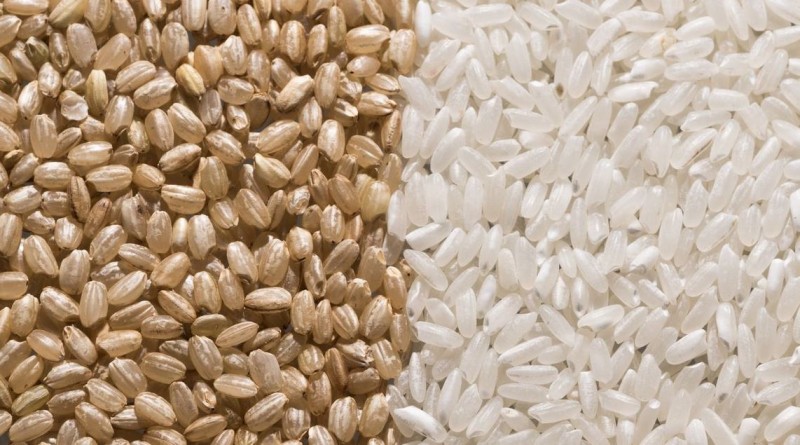
Rice flour is known to offer several benefits for the skin, including improving complexion and reducing blemishes. It also adds a radiant glow to the face and helps eliminate toxins. But did you know that rice flour is also packed with antioxidants, vitamins, and folic acid that offer numerous health advantages? Rice flour is prepared by finely grinding rice, and it has unique properties that make it beneficial for various aspects of health. In this article, we will explore the advantages of rice flour and compare it to wheat flour to understand which is more beneficial.
Benefits of Rice Flour
Liver Health: Rice flour is good for liver health because it contains choline, a nutrient that facilitates the transport of cholesterol and triglycerides from the liver. This helps in maintaining healthy cholesterol levels and liver function.
Gluten-Free: Rice flour is entirely gluten-free, making it a safe option for individuals with celiac disease or gluten sensitivity. Gluten-free diets are essential for those with these conditions to prevent adverse reactions.
Fiber-Rich: Brown rice flour, in particular, is rich in fiber. Fiber is known to reduce cholesterol levels and promote digestive health. It aids in regular bowel movements and prevents constipation.
Nutrient-Rich: Rice flour is a good source of essential minerals and vitamins, including thiamin, riboflavin, niacin, and vitamin E. These nutrients are crucial for overall health and well-being.
Benefits of Wheat Flour and Rice Flour Compared
Both wheat flour and rice flour have their unique nutritional compositions, and they offer distinct benefits:
Thiamin and Riboflavin: Wheat flour contains higher levels of thiamin and riboflavin compared to rice flour. Thiamin (vitamin B1) is essential for energy metabolism, while riboflavin (vitamin B2) plays a crucial role in maintaining skin health and boosting the immune system.
Folate: Wheat flour is richer in folate (vitamin B9) compared to rice flour. Folate is vital for the production of red and white blood cells and the conversion of carbohydrates into energy. It is especially important for pregnant women as it helps prevent neural tube defects in the developing fetus.
Gluten Content: One of the significant differences between the two flours is gluten content. Wheat flour contains gluten, a protein that can cause digestive issues for individuals with celiac disease or gluten sensitivity. Rice flour is naturally gluten-free, making it a safer choice for those with gluten-related concerns.
Carbohydrate Conversion: Wheat flour is more efficient in converting carbohydrates into energy due to its higher folate content. This makes it an excellent choice for individuals who need an energy boost, such as athletes and those with active lifestyles.
Digestive Health: Both flours contribute to digestive health, but in different ways. Rice flour's high fiber content aids in regular bowel movements and prevents constipation. On the other hand, wheat flour provides essential nutrients like folate that support the digestive system's overall function.
Which Flour is More Beneficial?
The choice between rice flour and wheat flour depends on individual dietary preferences and health considerations. Here's a summary of when each flour might be more beneficial:
Rice Flour: Rice flour is an excellent choice for individuals with gluten intolerance, celiac disease, or gluten sensitivity. It is also ideal for those looking to improve their skin health due to its skin-beneficial properties. Additionally, rice flour can benefit liver health and is a good source of antioxidants.
Wheat Flour: Wheat flour is rich in essential B vitamins like thiamin, riboflavin, and folate, making it a valuable addition to the diet for overall health. It is suitable for individuals who do not have gluten-related concerns and need the energy-converting benefits of these vitamins.
In conclusion, both rice flour and wheat flour have their merits and are valuable additions to a balanced diet. It's essential to consider individual dietary needs and preferences when choosing between the two. Incorporating a variety of grains and flours into your diet can provide a wide range of nutrients and health benefits, ensuring overall well-being.
How Prolonged Sitting for Over 10 Hours a Day May Increase the Risk of Dementia
What's the Secrets of Vibrant Menopause: What Women Should Eat and Avoid
Clove Tea For Health 10Benefits Of Drinking Laung Tea Everyday